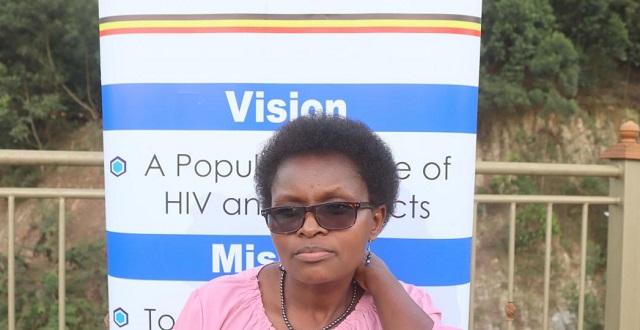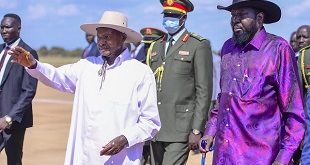
Kisoro, Uganda | THE INDEPENDENT | HIV/AIDS activists in the Kigezi sub-region are questioning why the government has failed to expedite the implementation of the AIDS Trust Fund.
Parliament enacted the HIV Prevention and Control Act in 2014. The law was operationalized in 2018 enabling the government to levy 2 percent of total annual tax levies on alcohol and soft drinks to generate 9.149 billion Shillings to be channeled to the Trust Fund.
However, since then, the operationalization has never been implemented to date.
Florence Tumuheirwe, the Executive Director of Kigezi Women in Development (KWID) a community-based organization based in Kigezi advocating for HIV prevention and human rights say that when external funders were still available, it was easy for KWID to mobilize HIV victims and sensitize them on how to live with the virus as well as linking them with health service providers.
Tumuheirwe says that the HIV trust fund should be activated as quickly as possible because the lack of funding to civil society organizations has crippled all the efforts to implement their goals.
Eunice Kabagambe, a counselor at Kambuga Hospital and the coordinator of People Living with HIV/AIDS in Kanungu district says that the failure of the HIV Trust fund to be operationalized has seriously crippled their activities like transport facilitation while inspecting patients.
Kabagambe explained that under the National Forum of People Living with HIV/AIDS Networks in Uganda (nafophanu) , they last received funding from the Embassy of Ireland and Global Fund.
Silas Cherotich, Monitoring and Evaluation Officer at Uganda Network of Aids Service Organizations (UNASO) says that unless the fund is not implemented, the government’s initiative on ending HIV and AIDS in Uganda by 2030 will not be achieved.
Oren Aryeija, the Kabale District HIV focal person says that despite the low donor funding, government health facilities will continue providing services effectively. According to Aryeija, out of 23,956 people who tested for HIV in health center III and IVs in Kabale district in the last quarter, 275 tested positive.
Hope Murungi, the head of the Private Sector department at Uganda AIDS Commission admits that the government is aware of the delay to activate the HIV Trust Fund. Murungi says that donors withdrew funding in order to focus on other international priorities like Climate Change and Covid-19.
Murungi says that discussions are still ongoing between relevant ministries to have the HIV/AIDS trust fund operationalized.
Uganda has about 1.4 million people living with HIV in Uganda, according to the latest statistics from Uganda AIDS Commission. Out of the total 1.2 million are on drugs.
*****
URN
 The Independent Uganda: You get the Truth we Pay the Price
The Independent Uganda: You get the Truth we Pay the Price



